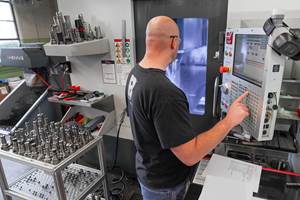Holding The Center
Using a collet-type workholding system, a high-volume shop improves accuracy when machining round parts.
Share




In the constant drive for greater metalworking efficiency, two factors have important effects on today's workholding applications. On one hand, as the dimensions of many types of parts have been continually downsized by designers, the demand for high-density fixturing has grown. On the other hand, continual reductions in the levels of human intervention are fundamental to the pursuit of fully-automated processes, as well as being essential for competing in a global economy. This compels U.S. machine shops to reduce the number of manual setups required for various metalworking operations. Efficiency also demands that these setups be completed faster and with less operator fatigue.
A high-density workholding system is usually evaluated first in terms of the numbers and sizes of parts that it can accept in a single setup. In addition, crucial performance factors such as resistance to deflection and avoidance of chatter during machining are taken into consideration. When switching from a conventional workholding fixture to an alternative system, however, improving the positioning accuracy of parts is not usually included among the anticipated benefits.
But better accuracy is exactly the purpose that American Turned Products (Fairview, Pennsylvania) intended to achieve when it installed a new, multi-part workholding system recently. Manufactured by Lexair, Inc., this system comprises modular clusters of hydraulically actuated collet-type closers that may be arranged in a variety of configurations. The company's Fairview plant is currently using this system to hold cylindrical parts that it manufactures for automotive airbag systems.
Geared For High Volume
American Turned Products is a privately owned company that operates two production facilities in the vicinity of Erie, Pennsylvania, and one facility in El Paso, Texas. The firm employs approximately 100 people at its 50,000-square-foot headquarters plant in Fairview. This high-volume plant operates 24 hours per day, 7 days per week.
Recognizing the importance of maintaining a highly skilled workforce, the company was one of the first Pennsylvania manufacturers to develop an extensive training program based on standards developed by the National Institute of Metalworking Skills (NIMS). Working in conjunction with a regional skills center, the company provides various levels of training to enable its employees to attain certification of their skills.
Because it specializes in large-scale production for some prominent industrial customers, American Turned Products certainly doesn't fit the definition of a job shop. Approximately 70 percent of its work is performed for automotive customers, while the balance of the company's business includes producing parts for manufacturers of off-highway equipment, hydraulic valves and pumps.
As its name indicates, the company produces many types of smaller, turned parts. Thus, the Fairview plant's equipment includes Hydromat rotary transfer machines, CNC bar and chucking machines and CNC multi-spindle lathes. But the plant also produces larger parts and performs a substantial amount of milling work. For example, although the airbag component is a round part, it's produced entirely by milling rather than turning. At present, the Fairview plant is using Daewoo horizontal machining centers as well as Fadal and Chiron vertical machining centers to produce these parts.
The Round Part Dilemma
Accurate positioning of round workpieces requires a fundamentally different approach to workholding than that employed for rectangular or polygonal shapes. Because the points where a round workpiece contacts its fixture are quite small, precisely positioning the centerline of the part can be quite difficult. This is true because roundness variations or surface imperfections at the points of contact can skew the centerline location sufficiently to create tolerance conflicts.
Because the plant's new workholding system incorporates collets that distribute holding force around the entire part, positioning is more precise than a conventional type of locating fixture. This is especially important because these airbag components are machined from 9310 extruded steel. In this regard, the Fairview plant's manufacturing engineer, Art Sider, says, "Prior to getting the new workholding system, we used V-shaped fixtures that located off the diameter of the part. With this setup, any variance in the part's extruded diameter would affect the true centerline of the part. With the collet system, we are able to machine each part on center."
To manufacture the airbag components, two setups are required to mill each part on opposite sides with the plant's horizontal machining centers. For this purpose, Lexair provided a workholding setup that attaches the collet modules to double-sided, pivoting tombstone fixtures. This enables the shop to expedite its production flow by rapidly moving parts between successive machining operations.
Mr. Sider has also been impressed by the efficiencies in setups made possible by this new system. "We've experienced about a 50 percent reduction in setup time compared to our previous, manual fixturing method," he says. Designed to hold parts securely when pressure is present in the system, the double-acting collet closers can be quickly released by using a pallet disconnect handle. This eliminates much of the physical strain associated with repeated hand-tightening of conventional workholding fixtures. The system also represents an important advantage in the Fairview plant's high-production environment.
This system may be operated via hydraulic or pneumatic power, depending on the required level of holding force. Although American Turned Products uses a system with a maximum collet capacity of 1.625 inches in diameter, the manufacturer can provide its standard collet closers in capacities ranging from 0.25 inch to 3.5 inches. Step-chuck closers are also available that increase the diameter capacity to as much as 6 inches.
Alternate Applications
Although the company has dedicated the collet system to its machining operations for the airbag parts, Mr. Sider believes that his shop will find additional applications in the future. In particular, he anticipates that this system will be useful in a variety of secondary operations for other types of round parts. At present, however, this system enables American Turned Products to add value to one of its most important parts by providing higher quality for the customer. At the same time that quality improves, the company also removes a significant amount of labor from its overall process. In the modern world of metalworking, these are the types of gains that represent a winning combination.
Related Content
Prioritizing Workholding Density Versus Simplicity
Determining whether to use high-density fixtures or to simplify workholding requires a deeper look into the details of your parts and processes.
Read MoreUsing Automation to Reduce COGS and Stay Globally Competitive
Decade-long, multiphase automation investments lower operating costs and maintain technology lead in an increasingly competitive global market.
Read MoreCustom Workholding Shaves Days From Medical Part Setup Times
Custom workholding enabled Resolve Surgical Technologies to place all sizes of one trauma part onto a single machine — and cut days from the setup times.
Read MoreMedical Shop Performs Lights-Out Production in Five-Axes
Moving to five-axis machining enabled this shop to dramatically reduce setup time and increase lights-out capacity, but success relied on the right combination of workholding and automation.
Read MoreRead Next
Building Out a Foundation for Student Machinists
Autodesk and Haas have teamed up to produce an introductory course for students that covers the basics of CAD, CAM and CNC while providing them with a portfolio part.
Read MoreSetting Up the Building Blocks for a Digital Factory
Woodward Inc. spent over a year developing an API to connect machines to its digital factory. Caron Engineering’s MiConnect has cut most of this process while also granting the shop greater access to machine information.
Read More5 Rules of Thumb for Buying CNC Machine Tools
Use these tips to carefully plan your machine tool purchases and to avoid regretting your decision later.
Read More












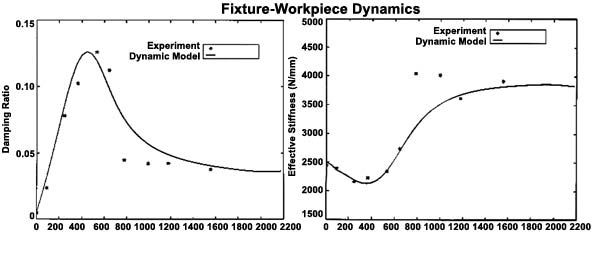
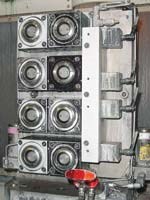
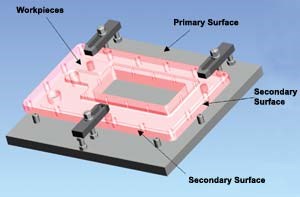
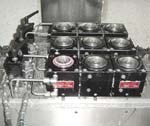
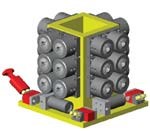








.jpg;maxWidth=300;quality=90)





